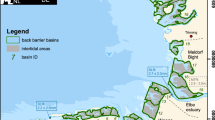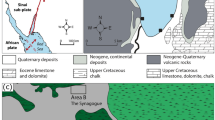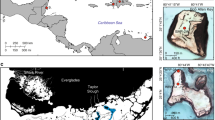Abstract
IN Nature of January 21, 1904, there appeared an article on “Earth Movements in the Bay of Naples”, by my father, Dr. Robert T. Gunther. This described his survey of historical marine levels along the Roman foreshore of Posilipo, in the Bay of Naples, extending into the Gulf of Pozzuoli. The implications of this work applied to the Italian coast-line as a whole. A subsidiary conclusion was that the fall of land level in the last centuries of the Roman Empire, increasing the swamps in the lower lying regions such as the Pontine Marshes and the Plain of Paestum, can have been responsible for the increase of malaria and so to the decline in the energy of the population.
This is a preview of subscription content, access via your institution
Access options
Subscribe to this journal
Receive 51 print issues and online access
$199.00 per year
only $3.90 per issue
Buy this article
- Purchase on Springer Link
- Instant access to full article PDF
Prices may be subject to local taxes which are calculated during checkout
Similar content being viewed by others
References
de Lorenzo, G., Rend. Acc. Lincei, Cl. Sci. fis. s 6a (Serie Sesta), 11, 1062 (1930).
Gunther, R. T., Geog. J. (Aug.–Sept., 1903).
Author information
Authors and Affiliations
Rights and permissions
About this article
Cite this article
GUNTHER, A. Historical Marine Levels in South Italy. Nature 201, 909–910 (1964). https://doi.org/10.1038/201909b0
Issue Date:
DOI: https://doi.org/10.1038/201909b0
This article is cited by
-
Historical Marine Levels in Italy
Nature (1966)
-
Marine Levels in South Italy
Nature (1964)
Comments
By submitting a comment you agree to abide by our Terms and Community Guidelines. If you find something abusive or that does not comply with our terms or guidelines please flag it as inappropriate.



